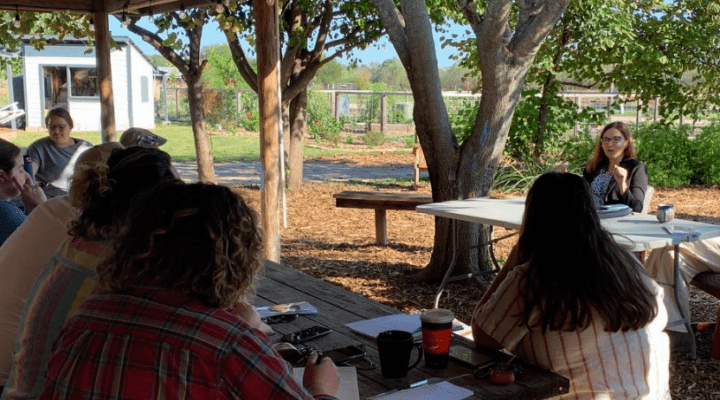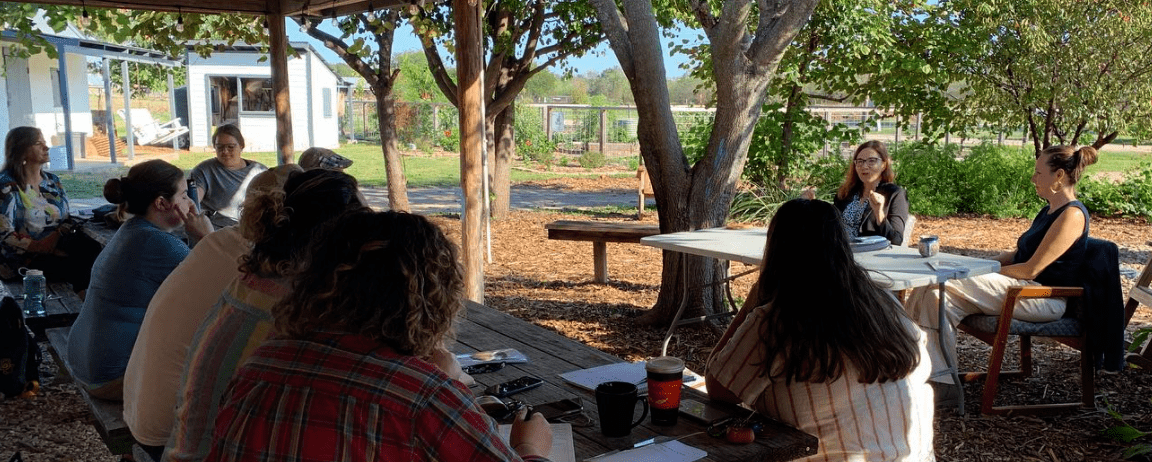It should come as no surprise that Jennifer Howell, director of a program blending environmental and theological studies at Baylor University’s Truett Seminary, perceives deep spiritual dimensions in the tilling of soil.
“You recognize you are vulnerable to something bigger than you when you are gardening or farming,” she said. “We like to think we are in control of things, but all you have to do is put your hands in the dirt for a couple years to see that is not the case.”
Howell speaks from personal experience as an avid gardener but also as a Baptist minister called to share a gospel that extends the vision of redemption and salvation to include compassionate treatment of the planet and of marginalized populations.
Her platform for sharing that message is the program for theology, ecology and food justice at Truett, a practical and academic course of study that exposes seminarians, ministers and community leaders to the interconnectedness of biblical teaching, the care for creation and concern for those in need.
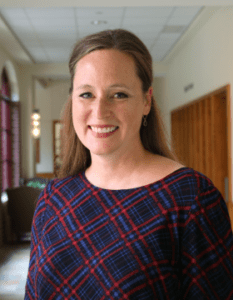
Jennifer Howell
“This is about love of God, love of neighbor and love of the land,” she said.
The program, which has been funded by grants from World Hunger Relief and the Eula Mae and John Baugh Foundation, has provided elective courses since 2020 but will begin offering a master of arts degree in theology, ecology and food justice beginning in fall 2022.
God’s concern for creation and for the poor and hungry is among the core underpinnings of the program, Howell said. “I think people know, intuitively, that that’s part of the Christian life. They know it’s a theological issue, but they often don’t know how it’s a theological issue.”
The program’s goal is to show students how caring for creation is a theological enterprise and inspire them to seek and share that knowledge through congregational, nonprofit and governmental settings.
“Now is the time to start training our future leaders and youth leaders to see how deeply theological these issues are so we might be more careful to how we respond to injustice and sin that’s playing out on the land,” Howell explained.
The curriculum includes courses and work commitments at the World Hunger Relief Farm located just outside Waco, Texas, where students study subjects like the doctrine of creation while gaining hands-on experience with various aspects of farming.
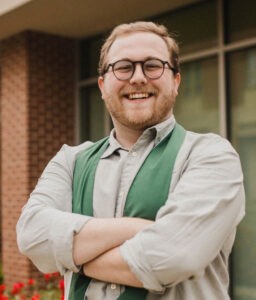
Samuel Moore
The agricultural work coupled with a growing understanding of the land as a central figure in the Bible has been transformative to the way students understand and live their faith, said Samuel Moore, a third-year student at Truett who has taken three courses with Howell plus a mentorship with her at the farm. “The program has been fundamental in the way it has caused me to see the world around me.”
Courses like creation theology, Moore said, transformed his understanding of stewardship, the dynamics of systemic hunger and what it means to be part of creation. “It’s opened my eyes to the work that could be done by Christians on food insecurity and climate science.”
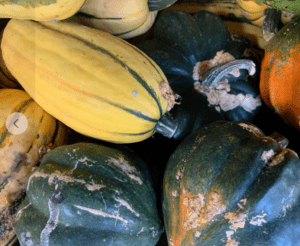
Produce harvested from the Waco farm.
Most students report such transformative experiences from working and studying at the farm, Howell said. “If you read the Scripture, you see that God makes a covenant with Abraham and his descendants and with the land itself. Scripture is rife with instructions on how to care for the land, but we gloss over it because we are not connected to the land.”
That human beings were first created by God breathing life into soil should also inspire a nurturing attitude toward the environment and other people, Howell said. “We ought to be more mindful of what human beings are — we are of the soil.”
The idea of the coming master’s program is to instill that mindfulness in ministers and in those who want to work in the fields of food justice and hunger relief, whether in the private, government or nonprofit sectors, she added.
While core foundational courses will be offered at Truett and at the farm, the program will be an interdisciplinary one, allowing students to fan out across the Baylor University campus for specialized coursework in related fields such as business and social work. A network of partnerships will provide internship opportunities.

An earthworm found on the Waco farm.
“The program recognizes that so many of our students want their faith rooted in more in-depth learning of Scriptures and theology, but in a way they can use to extend the reach of the church into the world,” said Jeremy Everett, executive director of the Baylor Collaborative on Hunger and Poverty.
Some students may want to attack hunger by studying supply chain logistics in the business school, while others may want to engage in food justice through public policy or social work.
To add real-world experience in these areas, the program also will provide stints of residential coursework in Washington D.C., and in Rome, Italy, where the United Nations World Food Program is headquartered.
“These residential courses show how public policy and hunger are intertwined,” Everett said.
The aims of the ecology, theology and hunger curriculum dove tail with the collaborative’s mission to help end hunger, he added. “There is only so much our organization can do, so we have to train and equip the next generation of leaders to go take what we are doing in public policy and field work and take it to the next level.”
The deep dive into creation theology and food justice provided by the program also will benefit church leaders, Howell added. “This coursework provides a foundation for future pastors to be prophetic about these issues from their pulpits.”
Related articles:
New endowed academic chair will lead Baylor in research to end hunger
Baylor initiative feeds 270,483 children in 43 states amid a global pandemic
Together for Hope partnership steps up the drive for hunger relief in Mississippi

